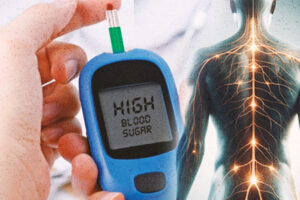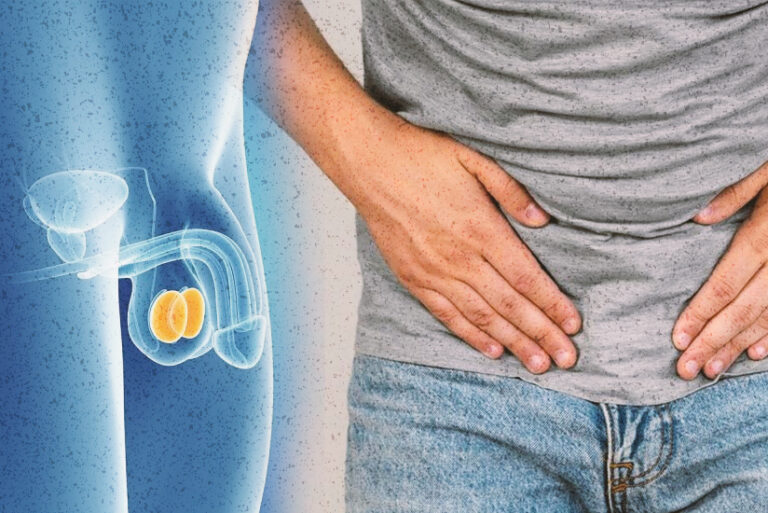By Rafael Castillo MD
(Conclusion)
Ivana Trump, the ex-wife of former US President Donald Trump, was found dead recently at the bottom of the stairs of her Manhattan apartment. She was believed to have fractured her hip or torso from the fall, and this was implicated as the cause of her death. No report of injury to the head or brain was mentioned in the news report.
With all due respect to the New York City medical examiner who made the report, it’s unlikely that an apparently healthy senior would die suddenly from fracturing one’s torso. She should still be able to crawl to the nearest phone and ask for help. It’s more likely that she had a syncopal episode (fainting), making her fall, resulting in the fracture. It’s highly possible that the syncope or loss of consciousness was due to a fatal irregular heartbeat causing sudden cardiac arrest.
If so, Ms. Trump is an addition to the statistics of sudden cardiac arrests in apparently healthy adults, which have been baffling experts since last year. We join many experts here and abroad in calling for a thorough investigation and research on what could be causing these inexplicable sudden deaths, the upsurge of which shows a strong temporal relationship with the rollout of vaccination in many countries of the world.
Time for review
It may be time to review the emergency use authorization (EUA) of vaccines and make them go through the standard process of all new drug introductions, for three reasons:
First, hardly anyone has been dying anymore from COVID-19 in the last four months. The deaths reported recently by the Department of Health were belated reports of deaths from last year. The COVID situation at the moment is still a major concern, but could hardly be called an extreme public emergency to justify the continued EUA of vaccines.
Every day, more than 400 people on average are dying in the Philippines from heart attacks, strokes and other cardiovascular problems, but never was the cardiovascular epidemic declared a natural emergency that allowed EUAs for new drugs being introduced to help prevent cardiovascular death.
Second, there are already medicines approved for the early treatment of COVID like molnupiravir and nirmatrelvir + ritonavir (Paxlovid), although both have unresolved concerns. Molnupiravir may have a possible carcinogenic potential in the long term, while Paxlovid has been shown to have COVID rebound. Some report that it seems to be more pronounced in vaccinated individuals.
We still recommend the use of ivermectin (IVM) and high dose melatonin, together with other immune-system boosting supplements like vitamin C, vitamin D3, zinc and lactoferrin. If given early, this regimen has been shown to be very effective, based on our group’s experience.
Metro Manila study
Dr. Jody Vergeire-Dalmacion, a retired professor in clinical epidemiology at the University of the Philippines College of Medicine, recently published a scholarly paper in the Journal of Clinical Microbiology and Immunology. Her group conducted a cross-sectional study among clinicians in Metro Manila who prescribed IVM plus other natural supplements for home care treatment of their COVID patients.
She concluded that “IVM is effective for COVID infections provided it is given early and the dose is adjusted for severity and comorbidities. The graduated dose regimen of IVM and the predilection of the virus to mutate will become a challenge for designing future randomized clinical trials.”
The third reason the vaccines have to be reevaluated and made to undergo the standard process of new product application is so that the manufacturers could present more data on its efficacy and safety, especially the latter.
They have failed to deliver on their efficacy promise when they were first introduced—a sterilizing immunity or protection from infection for its recipients. Some studies from highly vaccinated countries even suggest a reverse or negative protection in the vaccinated population. That means the more the numbers of jabs received, the higher the risk of infection, and possibly worsening of the disease.
The protection from hospitalization and deaths with vaccination is no longer consistently supported by recent data. Are we exposing the public to risk with repeated boosting for a perceived benefit which is not actually happening? No one knows the answer for sure, and only a thorough study might give us the answer. The burden of proof of efficacy and safety should be on the manufacturers. Meanwhile, it’s foolhardy to maintain that vaccines are safe and effective, and continue mass vaccination, including in children.
Unfortunate casualties
Not only is there a big question on its efficacy; its risk profile is something vaccinees didn’t sign up for. Is it worth the occasional deaths that have been attributed to it?
The rare deaths and disabling side effects may be one in thousands of vaccinees, but how can you explain it to the family of these unfortunate casualties? Why should it be imposed on low-risk individuals, especially schoolchildren, whose risk of dying from the latest variant of COVID is perhaps one in more than a million, while the risk of experiencing a serious, potentially life-threatening adverse reaction such as myocarditis (heart swelling) is around one in 6,000?
We’re not concluding that vaccines are causing the current increase in sudden cardiac arrests and deaths in apparently healthy individuals, but it’s prudent to halt the mass vaccination until we get a clearer picture if there’s really no causal relationship. The temporal relationship between rollout of vaccination and increase in unexplained excess deaths worldwide appears to be quite strong.
Individuals, including healthy young athletes, are collapsing while practicing or during an actual game. Last week, a 35-year-old former American athlete was reported to have suddenly gone into cardiac arrest and died while jogging in their village. Three weeks ago, an independent news website (Air Foundation USA) reported that 18 vacationers, ages ranging from 22 to 85, had sudden cardiac arrests on Italian beaches. Eleven of them were under 60 years old. It’s just probably coincidental that most, if not all of them, were vaccinated. But we never had this phenomenon before of a marked increase in the number of apparently healthy individuals experiencing sudden cardiac arrests.
Even the experts are now conceding that the swelling of the heart muscles and/or its lining (myocarditis-pericarditis) can be caused by the mRNA vaccines. Several weeks ago, a study based on data from emergency departments in Israel, a perfect model of a highly vaccinated country, has revealed an increase of more than 25 percent in cardiovascular-related emergency calls in the young adult population, following the rollout of COVID vaccines, in both males and females. The authors wrote that there was no similar increase noted due to COVID infection alone. The study was published in Nature Journal.
The link between mRNA vaccination and myopericarditis is now indisputable. Even the Centers for Disease Control and Prevention in the United States have acknowledged this link. Studies have shown that the risk of myocarditis after receiving a second vaccine dose is now estimated to be between one in 3,000 to one in 6,000 in men aged 16 to 24.
Myopericarditis is known to cause life-threatening arrhythmias (irregular heartbeat) which could make the heart go into cardiac arrest. This is a likely reason even healthy athletes are suddenly collapsing, with most of them not even realizing what hit them. Only a few are fortunate to be revived and at least survive, though that marks the end of their athletic career.
Significant increase
What was significant in the Israeli study was that the data strongly suggested that the cardiovascular complications were not COVID infection-related. This refutes other articles and expert commentaries in scientific journals, which arbitrarily suggest that cardiovascular complications attributable to COVID infection are more common than those following vaccination.
The Israeli researchers culled data from Israel National Emergency Medical Services (EMS) due to “cardiac arrest and acute coronary syndrome EMS calls in the 16–39-year-old population” covering the period between 2019 and 2021. This gave them a good baseline, from pre-COVID epidemic (2019) to COVID epidemic without vaccines (2020), to COVID epidemic following widespread vaccine rollout (2021).
The data showed a significant increase of over 25 percent in all EMS calls during Jan. to May 2021, compared with the years 2019–2020. The temporal relationship again between vaccination and increase in emergency consultations due to cardiovascular symptoms in under 40-year-old vaccinees is strong. In contrast, the data did not detect a significant association between the COVID infection rates and the cardiovascular emergencies.
What was also new in this study was that even females showed an increase in the rate of cardiovascular complications, in contrast to previous studies showing that the complication was seen predominantly in males.
In the study, the authors recommended: “It is essential to raise awareness among patients and clinicians with respect to related symptoms (e.g., chest discomfort and shortness of breath) following vaccination or COVID infection to ensure that potential harm is minimized.”
We still believe that our health officials and local experts are not too naïve to remain convinced that there’s absolutely no cause for alarm with mass vaccination, and that mandating it even for schoolchildren is not endangering the public. They may need to cup their ears, not to listen more to the pied piper’s music, but to better hear what various experts, stakeholders and knowledgeable advocates have been saying








